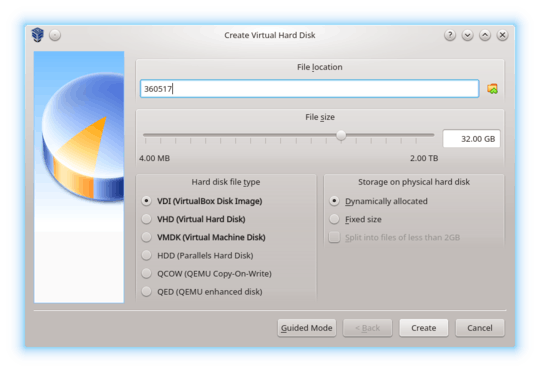A long time ago i did one test, convert dynamic vdi into dynamic vhd just to test speed and file sizes.
Remember it was an inmutable Windows guest clean os install with some apps, remember for my test i convert one format to another, so both are suposed to have the exactr same image, like doing a cloning.
For a disk size of 64GiB, the VDI file size was arround 18GiB, while the file size of VHD arround 22GiB.
I can remember i saw theese two things:
- Boot time was significally different, if i do not remember bad vhd was 1.6 times faster than VDI
- VHD size was much bigger than VDI, arround 4GiB gigabytes bigger over a 18GiB, so 1.2 times bigger.
That was long time ago and test was done on an HDD, but i ensure both files where defragmented and next to each other on the fast part of the disk.
Hope someone can do real SSD tests, but my feeling is that VHD is faster (and bigger) than VDI.
Just a tip: VHD/VHDX can be compacted diretly on any Windows 7 and Up by using DiskPart command line tool, for VDI there is needed an external tool CloneVDI.
Sorry i did not test VMDK, i did not know how to compact it without changing its UUID (the disk UUID), remember VBOX command tools allways change it on every clone, no matter what format you use.

Performance wise, I think the best is to create fixed disks if you have the space. Otherwise it is very stressful on the OS when using the virtual machine instead of once at creation time. – Alexis Wilke – 2014-10-29T00:49:24.190
3Another thing to consider is resizing the image when you may need to - VBoxManage cannot resize VMDK's, so you'd have to clone to VDI first, then resize, then back to VMDK + fudge up the UUID. For this reason alone, VDI seems the better choice for me. – Mike Demenok – 2015-05-11T20:18:28.773
11Run Virtual box and click the help icon > Contents, there is a fair explanation in there under "Virtual Storage" – Moab – 2011-11-23T01:03:54.043
1Regarding migration to "another free virtualization solution... that would run fine on Ubuntu", I'm pretty sure VirtualBox is available for Linux. – Iszi – 2011-11-23T04:29:47.837